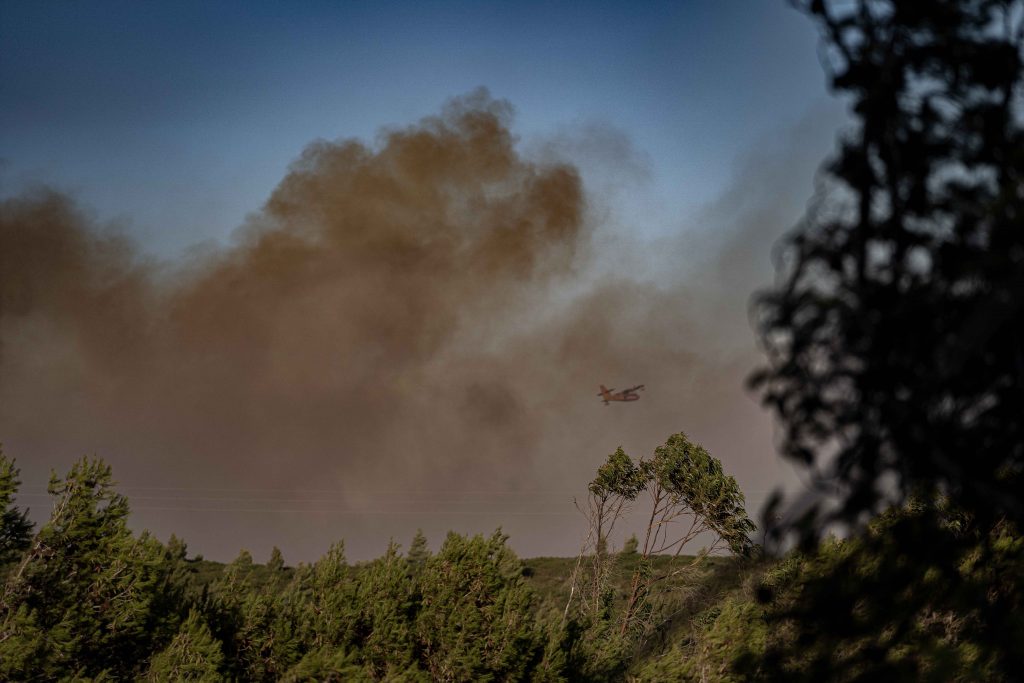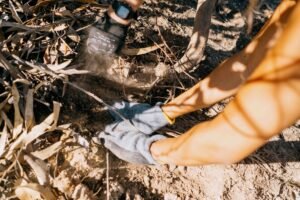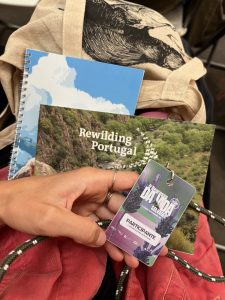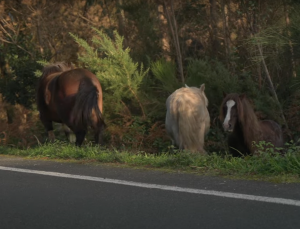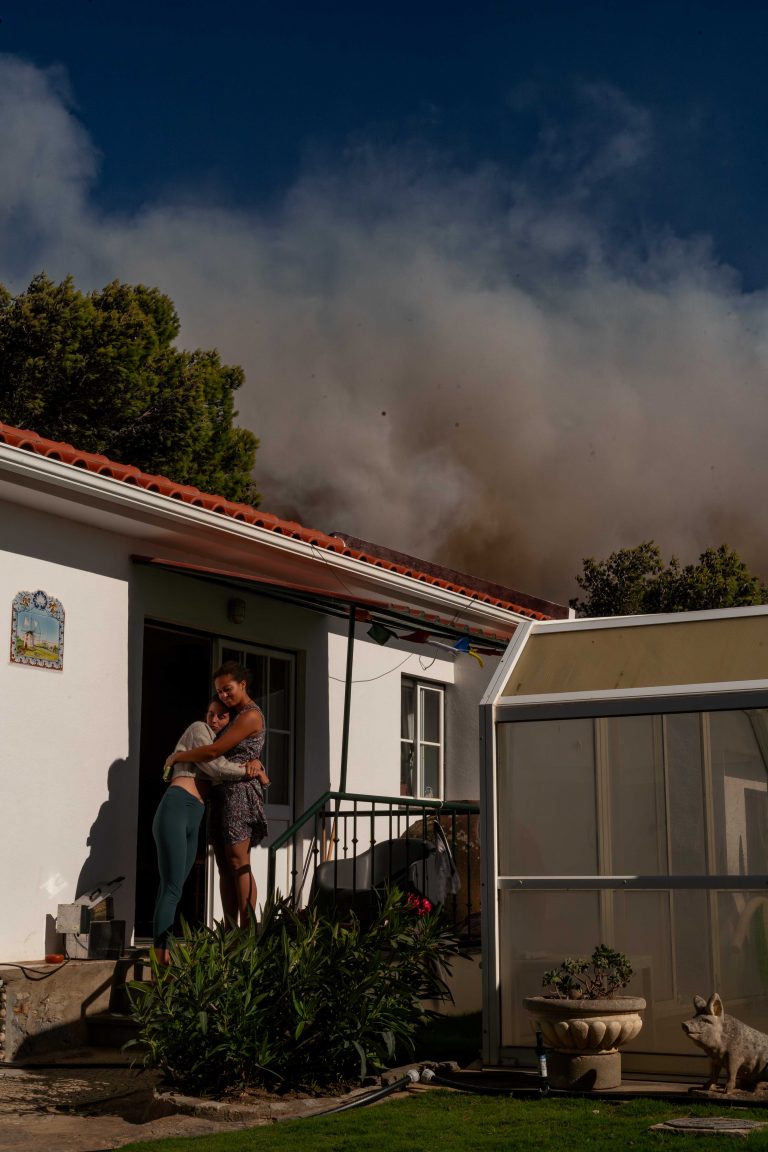
Year after year, southern Europe is experiencing extreme wildfires. With part of the Sylvester headquarters located in Portugal and our pilot project based in Galicia, Spain, the fires have been at the forefront of our minds since the very beginning. During our first Sylvester Week, a wildfire broke out right next to where we were staying on the very day we held our association’s founding assembly. The following year, the flames came so close to the homes of some of our team members that they had to evacuate.
And this year, Portugal and Spain, especially Galicia, are facing what may be the worst wildfires to date, with no sign of them stopping. This is not just bad luck. This is not only climate change. This is a systemic issue, visible across Europe, but most striking in Portugal and Spain, where the consequences hit hardest. It is the result of a broken system that prioritizes monoculture plantations and short-term economic gains, while promoting forest management strategies that amount to widespread mismanagement. Across these regions, small projects like ours are working to build resilient ecosystems and forests. But they remain scattered among vast, poorly managed landscapes, and when the fires come, they face a David versus Goliath battle.
It is precisely this setup that we want to change. That’s why we joined the Faixas Vivas network, a collective of NGOs across Portugal advocating and fighting for better forest and fire management strategies. And with fires raging across the Iberian Peninsula, already estimated to be worse than the 2017 fires, we share the network’s official response to the recent fires, along with links to English resources, hoping to shed light on a major side battle we are fighting with Sylvester, as part of a broader collective effort.
Faixas Vivas
Portugal is burning again. Year after year, the same images repeat: families fleeing from flames, homes at risk, villages cut off, entire landscapes reduced to ashes in a matter of hours. On days that seem endless, we lose not only forests but also lives, biodiversity, collective memory, and our future.
What consumes us is not just the fires, but also our inability to learn from them. After each summer come promises of change, rushed debates, and repeated diagnoses. But once the heat passes, the country forgets — until the next tragedy hits, harshly reminding us that nothing essential has changed.
Portugal is not prepared for increasingly intense heatwaves, prolonged droughts, and unpredictable climate phenomena that are no longer the exception but the rule. We still lack a response that matches this new reality, which will only worsen in the coming years. Every summer without structural transformation is a deeper step into a cycle that threatens communities, territories, and lives.
The responses adopted so far have proven insufficient and even counterproductive. Millions of euros continue to be funneled into fuel management systems and firebreaks that, year after year, fail to contain fires. This narrow, short-term approach has contributed more to environmental degradation than to building resilience in the medium and long term.
The simplistic narrative persists: that the problem lies in “uncleared underbrush,” lack of access, or lack of resources. It is financially unviable, logistically impossible, and environmentally unsound to maintain permanent management of millions of continuous hectares every year — it’s completely unrealistic!
We must also acknowledge that it will never be possible to “eliminate” areas with high fire risk. The difference lies in how we manage and monitor these areas, which must be subject to much stricter surveillance. It’s inconceivable that, after so many warnings, around 200 new fire outbreaks occurred during the two days identified as the most critical this season. This level of negligence — or even criminal action — is absolutely unacceptable in a country that claims to take fire risk mitigation seriously.
Transformative programs like the Landscape Reordering and Management Programs (PRGPs) and the Integrated Landscape Management Areas (AIGPs) seem to have hit administrative roadblocks, and the Integrated Operations for Landscape Management (OIGPs) have so far been reduced to mere spot-cleaning efforts, failing in their core aim to diversify land use and create resilient landscape mosaics. Public funds should be used for the conversion and/or maintenance of systems that provide ecosystem services to society — not to cover the responsibilities of industrial timber plantations whose benefits go only to landowners.
Meanwhile, across the country, invasive plant species that thrive after fires are spreading, as are the unregulated plantations of eucalyptus and pine, in direct contradiction to national targets for reducing such areas. Many of these plantations are illegal, poorly monitored, and contribute to a forest model that is high-risk and unsustainable.
Our Proposals
The Faixas Vivas Group advocates for structural and integrated transformation, based on long-term measures:
Landscape diversification:
- Mandatory annual quotas for land-use conversion in high-risk fire areas. Disordered plantations and low-conservation-value underbrush should be converted into more resilient systems adapted to local soil and climate conditions.
- Accelerated implementation of AIGPs and PRGPs, with increased funding and reduced bureaucracy.
- Adjust Regional Forest Planning Programs (PROFs) to reflect a more diversified vision of forest systems.
Redirecting investment:
- Fund resilient production systems and conservation or mixed forests instead of continuously paying for repetitive underbrush clearing.
- Channel support toward mixed, biodiverse forests that are more fire-resistant, and toward diversified agroforestry and agropastoral systems.
Reform of the Integrated Rural Fire Management System (SGIFR):
- Immediate adjustment of fuel management criteria, based on the Faixas Vivas Manifesto, adopting more rigorous ecological standards both in vegetation management and in the selection of priority areas — aiming for systems that require progressively less ongoing maintenance.
- Creation of fire-resistant broadleaf forest zones, such as oak, cork oak, chestnut, among others, at a scale sufficient to slow fire spread, something already well-documented. These zones will also serve as ecological corridors for biodiversity, Faixas Vivas!
Strategic integration:
- Coordinate SGIFR with biodiversity strategies, the Common Agricultural Policy (PAC), regional development plans, and even tourism policies to optimize resources and results.
Enforcement and monitoring:
- Strengthen enforcement against illegal eucalyptus plantations.
- Increase oversight of misapplied SGIFR regulations, such as indiscriminate cutting of conservation-value broadleaf trees and shaded (or potentially shaded) groves.
- Intensive surveillance in critical areas during high-risk periods, including possible temporary access bans on extreme-risk days.
Post-fire restoration (short term):
- Urgent creation of restoration and reforestation plans aligned with prevention, conservation, and regional development goals.
- Open funding lines for converting burned areas into more resilient systems: broadleaf groves, montado (traditional oak-based systems), mixed forests, and compatible agroforestry systems.
Year after year, we are losing the opportunity to structurally transform our territory. The climate crisis is no longer a distant warning: it is the reality suffocating us every summer with flames. If we don’t change course, we are doomed to live in a country constantly under threat from uncontrollable fires and the resulting human and environmental desertification.
The funding exists, but it is being misdirected. The will exists, but it is being blocked by inertia and a lack of political vision. We cannot resign ourselves to this fate. It is urgent to turn the page and build a more resilient, productive, and sustainable national model, where forests are allies in development — not fuel for disaster.
The Faixas Vivas Group, a network of organizations, companies, and citizens, will continue to fight for a Portugal with fewer fires and more biodiversity. We demand the courage to make decisions worthy of the threat we face. We need a serious and ongoing debate about land use planning — not just when tragedy knocks at the door.
There is no time left to delay. Every fire is a warning. Every summer lost is an opportunity that won’t return.

